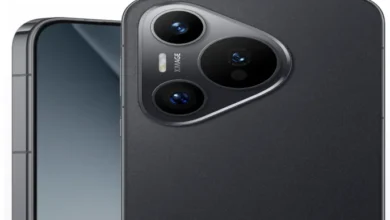
Wireless Chargers and Sustainability: Reducing Cable Clutter and Environmental Impact
Electronic devices, including smartphones and tablets, have seamlessly integrated into people’s daily lives, underscoring the imperative need for sustainable practices. With each technological leap forward, people’s reliance on energy sources intensifies, exacerbating the environmental consequences. Yet, the emergence of wireless charging technology offers a ray of hope, paving the way for a more sustainable future by lowering energy consumption and reducing electronic waste. A wireless charger is at the forefront of this movement, providing efficient and eco-friendly power solutions for modern devices.
The Problem of Cable Clutter:
Traditional charging methods often involve a plethora of cables and adapters, leading to cluttered desks, tangled cords, and frustration. Not only does this clutter detract from the aesthetics of your living and working spaces, but it also poses safety hazards and contributes to electronic waste. By eliminating the need for physical connections, they help reduce cable clutter, creating a cleaner and more organised environment.
Environmental Impact of Electronic Waste:
The escalating issue of electronic waste, commonly known as e-waste, poses a global concern. With consumers frequently upgrading to newer devices, old electronics are widely discarded, contributing to landfill pollution and the emission of harmful chemicals. Moreover, the manufacturing and disposal of electronic devices generate carbon emissions and other environmental repercussions. Wireless charging offers a solution by extending the lifespan of devices and decreasing the reliance on disposable batteries, thereby alleviating the ecological impact of electronic waste.
Energy Efficiency of Wireless Charging:
They not only offer the convenience of cord-free power delivery but also boast superior energy efficiency compared to traditional charging methods. By leveraging advanced technology, wireless chargers minimise energy loss and optimise power delivery, resulting in reduced overall power consumption. Moreover, the integration of innovative charging technologies further enhances efficiency by tailoring power output to the specific requirements of each device. Embracing them enables us to not only streamline your power management but also contribute to a greener, more sustainable future.
Integration with Renewable Energy Sources:
Wireless charging technology stands ready to transform how you harness renewable energy sources like solar and wind power. By harnessing clean energy to power your devices, you can significantly diminish your dependence on fossil fuels, thereby combatting climate change. Furthermore, the versatility of wireless charging facilitates charging in remote or off-grid locations, offering users unprecedented mobility and accessibility. The seamless integration with renewable energy sources represents a notable stride toward a sustainable and eco-friendly future.
Corporate Responsibility and Sustainability Initiatives:
Many companies recognise the importance of sustainability and incorporate it into their business practices. By adopting wireless charging solutions for their products and services, companies can demonstrate their commitment to environmental responsibility and appeal to eco-conscious consumers. Additionally, investing in wireless charging infrastructure can lead to long-term cost savings and operational efficiencies, further incentivising businesses to embrace sustainable technologies.
Consumer Awareness and Adoption:
With the increasing awareness of environmental concerns, consumers are actively pursuing sustainable alternatives to conventional products and services. They offer a convenient and eco-friendly solution to power management, making it an attractive option for environmentally conscious consumers. By educating consumers about the benefits of wireless charging and encouraging its adoption, you can accelerate the transition to a more sustainable future.
A wireless charger has the potential to significantly reduce cable clutter and minimise the environmental impact of electronic devices. By promoting energy efficiency, reducing electronic waste, and integrating with renewable energy sources, these technologies represent a step forward in your collective efforts toward sustainability. Continuing to embrace wireless charging solutions can contribute to creating a cleaner, greener, and more sustainable world for future generations.




